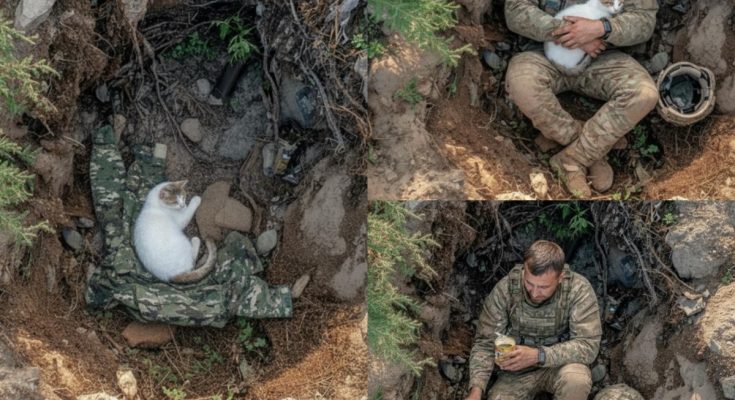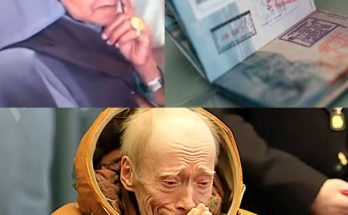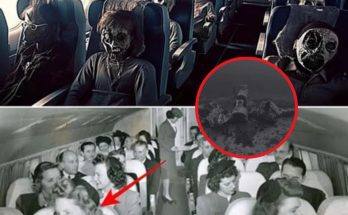When soldiers found his body, his final note wasn’t about himself. It wasn’t about his family, his duty, or his country. It was about his cat.

For three months, drone footage from the front line quietly captured an unlikely friendship — a soldier crouched in the rubble, sharing his rations with a stray cat. Through gunfire and silence, through smoke and snow, the two were always seen together: the man keeping the cat warm in his jacket, the cat pressed against his chest, purring softly as bombs fell in the distance.
At first, no one noticed. The footage, recorded for surveillance, was just another glimpse of daily life on the front. But when analysts began to recognize the same soldier and the same cat appearing day after day — always in the same trench, always side by side — something about the quiet companionship began to stand out.
The Quiet Friendship Amid Chaos
In war, where trust is rare and loss is constant, the small gestures mean everything. To the soldier — whose name has not been released for privacy — the cat was not just a stray. She was a sign of life in a place surrounded by death.
He named her Shafa, meaning “warmth” in his dialect. Every morning, before patrol, he would break a piece of his bread and leave it beside the wall where she slept. When the nights grew colder, he started keeping her close, wrapping her in his jacket as he rested against the sandbags.
His comrades would tease him. “You’re feeding a cat while we’re starving,” they laughed. He only smiled. “She’s the only one who doesn’t lie,” he said quietly.
That moment, captured faintly on drone footage, would later become one of the most shared clips on social media — a symbol of humanity surviving where everything else had burned away.
The Final Battle
It was the 89th day since Shafa first appeared. A massive assault hit their position before dawn. Gunfire, mortars, and smoke filled the air. Amid the chaos, the drone camera — now damaged by shrapnel — caught a final glimpse: the soldier crawling back toward his position, clutching his jacket tight to his chest.
When the assault ended, silence fell. Hours later, medics arrived to recover the wounded. Near the edge of the trench, they found him. He had fallen exactly where the last frame of footage ended.
Inside his torn jacket was Shafa, trembling but alive. And tucked into the inside pocket — written on a damp, blood-stained piece of paper — was his final note.
The Note That Stopped the World
“I know they are approaching. I’ll fight for my friend. I’ll do anything to keep him safe. If this takes me, please leave my jacket in my hole — winter is coming and he will come for warmth.
P.S. If you can catch him, his favorite food is the blue can.”

That was it. No signature. No rank. Just those few lines — a message written not to command, not to history, but to kindness itself.
When the unit’s captain read the note aloud, no one spoke. Some men turned away. Others wiped their faces. One of them later said, “We’ve all written letters home. But none of us ever thought to write one like that.”
The Cat That Waited
After the medics carried him away, they tried to coax Shafa out of his jacket, but she refused to move. For two days she stayed there, sleeping in the same spot where his body had been found.
Eventually, one of the soldiers decided to honor his wish. They left the jacket in the trench, just as he had written. Weeks later, the same drone that had filmed their friendship recorded a new scene: Shafa, returning. She crawled into the jacket and curled up inside it, just as he had said she would.
The image went viral. Within hours, millions around the world shared the story under the hashtag #TheSoldierAndTheCat. News outlets picked it up. Artists painted murals. A Ukrainian rescue foundation even named a new animal shelter “The Blue Can.”
A Symbol of Humanity
War stories often speak of courage, sacrifice, and loss. But rarely do they speak of love — not the grand, cinematic kind, but the quiet kind that asks for nothing in return. The kind that lives in a soldier’s pocket, purrs through the night, and finds warmth in the coldest places on Earth.
When reporters reached out to the soldier’s family, they shared that he had always been “gentle with animals.” His mother said softly, “He once stopped a convoy to carry a kitten off the road. He never believed in cruelty. Even in war, he found a way to be kind.”
She now keeps a framed copy of his note beside a photo of Shafa, who was eventually rescued and brought home. The cat now lives with the soldier’s younger sister. “She still sleeps on his old jacket,” she said. “Every night.”
The Legacy of a Promise
In a world where headlines are filled with hate and destruction, his story became something else — a reminder that even in the darkest moments, compassion can survive. That one soldier’s final act wasn’t about death, but about life.
And maybe that’s why people couldn’t look away. Because in that small, battered trench, between a man and a stray cat, humanity revealed its truest form.
A journalist who covered the story wrote, “He didn’t just die a hero. He died proving that love doesn’t need peace to exist — only a heart that refuses to give it up.”
His last words were simple:
“If you can catch him, his favorite food is the blue can.”
And somewhere, far from the battlefield, a little cat still waits — not for war, not for victory, but for the sound of a voice that once promised her warmth forever.



